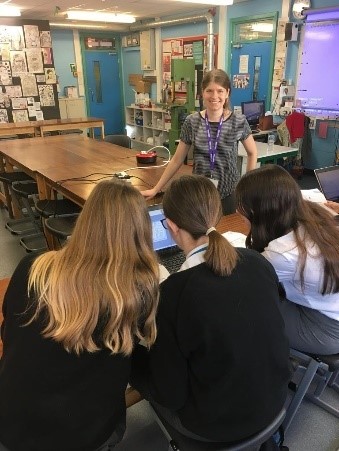Mission to get more girls into technology

Girls from local secondary schools are being offered the opportunity to discover the types of roles available within the technology industry. The ‘Girls in Technology’ workshops have been designed to motivate and inspire girls to consider careers within this sector by educating them on the types of creative and innovative roles available.
It’s no secret that as we come to rely more heavily on technology in our working lives and in our homes, there’s an ever-increasing need for skilled workers in the technology industry to support this. Already technology-based businesses are finding it harder to get good recruits and unless big changes are made, the situation is going to get much tougher.
Time to educate and empower more girls into the technology sector
Given that the British Computer Society, in its ‘Diversity in IT 2017’ report, states only 17% of those working in technology in the UK are women (which is significantly lower than most other sectors); that only 7% of students taking computer science A-level courses are female; and only half of the girls studying IT and tech subjects at school go into a job in the same field – it’s well and truly time to address this imbalance.
Committed to encouraging young people into the tech industry and as a member of the Education Business Partnership (a charity which works to inspire our future workforce and is coordinating the ‘Girls in Technology’ campaign), The NAV People wants to help educate and empower more girls to be part of the tech industry and to take on leadership roles.
Workshops show technology can be fun
One of the ways The NAV People helps is to send its team of ambassadors (predominantly women), into secondary schools to run workshops with small groups of Year 8 girls. The programme aims to give the girls hands-on experience, such as learning basic designing and coding which they apply to various scenarios and compete against each other. Emphasis is on showing girls that technology can be fun, interesting and something they can master just as competently as boys.
The girls also get to hear directly from those ambassadors – women who actually work in technology – about their different roles and experiences, and why they believe a career in the technology sector ought to be considered.
Attending these workshops has challenged many of the girls’ pre-conceived ideas about technology. It’s shown them the wide range of roles available, the education required (no, you don’t have to be good at maths to be a good programmer!), there’s a lot of scope for being creative – and in reality, the technology sector can be a very rewarding, interesting and enjoyable career path. And women are good at those jobs!




